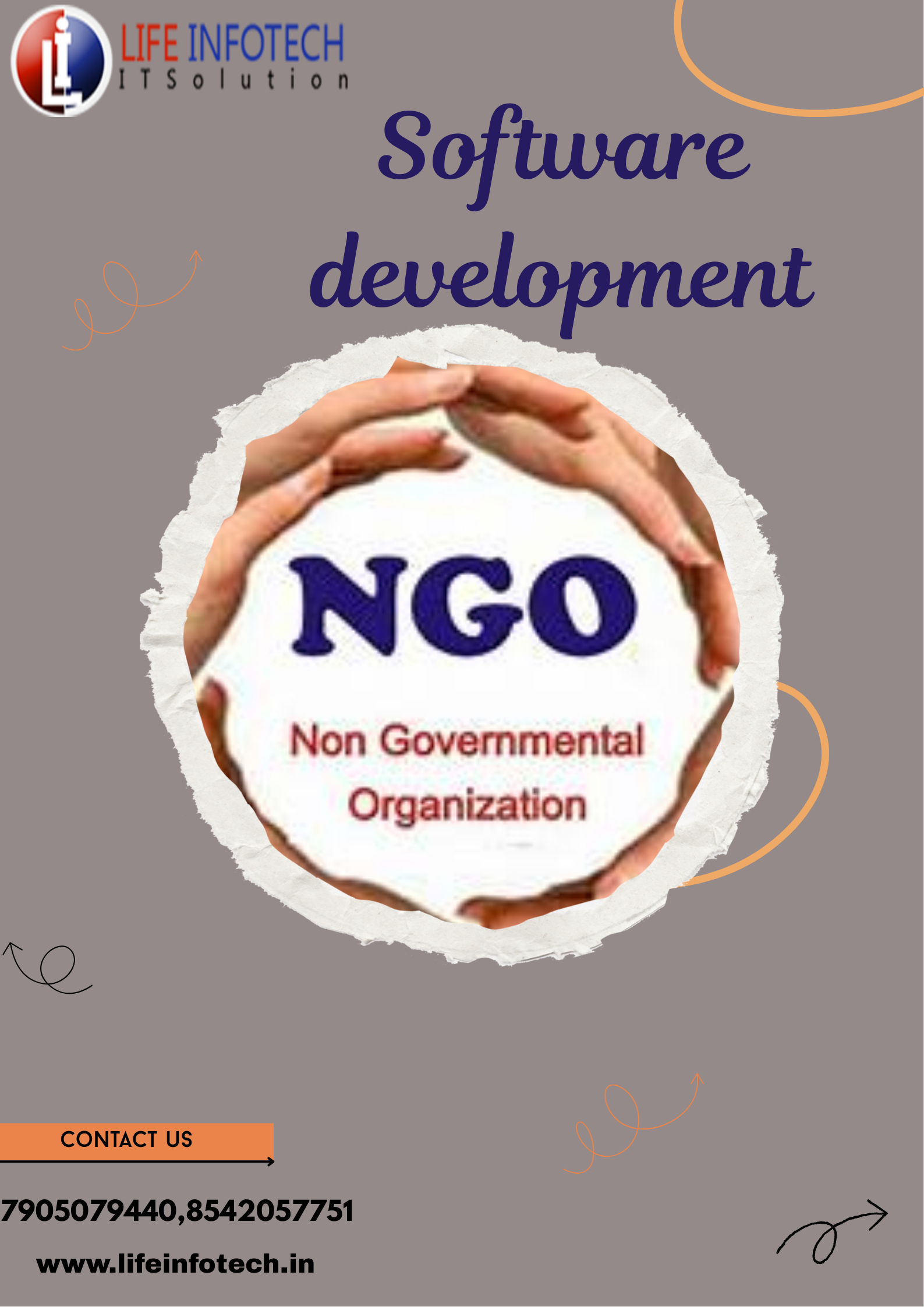NGO Software Development: Empowering Social Change with Technology
Here’s a comprehensive content outline for NGO Software Development, lifeinfotech it solution company, which you can use for a website, brochure, presentation, or proposal. This includes key topics and example wording tailored to NGOs looking to digitize their.
Key Modules in NGO Software
- Project & Program Management
- Track ongoing initiatives, milestones, deadlines, and team responsibilities.
- Monitor project impact through integrated reporting tools.
- Donor & Fundraising Management
- CRM for managing donors, pledges, and contributions.
- Integrate with payment gateways and fundraising platforms.
- Volunteer Management
- Database for registration, training, and scheduling.
- Communication tools and attendance tracking.
- Finance & Budgeting
- Manage grants, expense tracking, budget forecasting.
- Multi-currency support and audit trails.
- Monitoring & Evaluation (M&E)
- Custom dashboards for KPIs.
- Data collection tools (mobile/web forms).
- Reporting & Analytics
- Automated report generation (impact reports, donor reports, financial summaries).
- Visual data analytics.
- Communication & Outreach Tools
- Email and SMS marketing for awareness campaigns.
- Social media integrations.
- Document & File Management
- Secure cloud storage for key documents.
- Role-based access controls.
🧩 Features of a Good NGO Software
- User-friendly interface for staff and volunteers.
- Secure and GDPR-compliant data handling.
- Mobile-friendly access for field workers.
- Customizable modules based on NGO type.
- Multilingual support for global outreach.
- Integration with tools like QuickBooks, Salesforce, Google Workspace, etc.
🛠️ Technologies Commonly Used
- Front-end: React, Angular, Vue.js
- Back-end: Node.js, Python (Django), PHP (Laravel)
- Database: MySQL, PostgreSQL, MongoDB
- Cloud: AWS, Google Cloud, Azure
- Mobile Apps: Flutter, React Native
✅ Benefits of Custom NGO Software
- Efficiency: Automates repetitive tasks and data handling.
- Transparency: Real-time reporting increases donor trust.
- Scalability: Adapts to growing operational needs.
- Accessibility: Centralizes data and access across branches or countries.
🚀 Development Process
- Requirement Gathering
- Wireframing and UI/UX Design
- Development of Core Modules
- Testing & QA
- Training and Deployment
- Ongoing Support and Maintenance
🌐 Use Cases
- An education NGO tracks attendance and academic progress of children in remote areas.
- A health NGO manages medical records and mobile clinics via an integrated platform.
- A disaster relief NGO coordinates volunteers and resources in real time through an app.
Conclusion
Custom software can significantly enhance an NGO’s ability to deliver impact. Whether it’s through better donor communication, streamlined operations, or improved data-driven decision-making, NGO software development and CRM is a catalyst for change in the digital age.
Would you like me to turn this into a PDF, website section, proposal format, or presentation slides?

